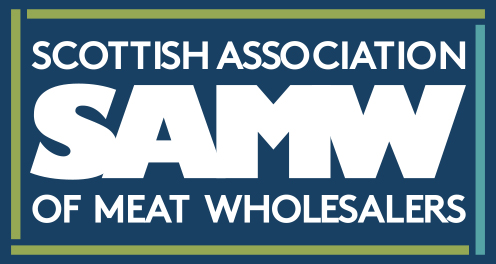President targets Brexit and livestock numbers
The urgent need for ‘Brexit Now’ certainty and a call for combined government and industry action to reverse the decline in livestock numbers were the dominant issues tackled by SAMW president, Frank Clark, during his address to the Association’s annual conference in Glasgow on Saturday, April 21, 2018.
Tell us NOW!
Responding to the conference theme of ‘Brexit Now’, the president told delegates that this industry was still waiting for clarity across a range of Brexit concerns, despite having been told by government during last year’s conference that everything would be much clearer by April 2018.

Frank Clark
“Well the truth is that we don’t know a lot more than we did then,” he said, before delivering a list of Brexit Now requirements which are becoming increasingly urgent for SAMW members.
“We need to know NOW where we’re going to end up the day after March 29, 2019,” he said.
“We need to know NOW what’s going to happen during the 21 months of transition that will follow the UK’s midnight exit point from the EU on that day.
“We need to know NOW what the months and years following December 31, 2020, will offer us as business owners, managers, regulators and product promoters.
“Frankly, we’ve heard and seen a lot about ‘Brexit tomorrow’ over the last two years and quite a bit about ‘Brexit sometime in the future’ but not much about the here and NOW, which is where our businesses are based and where we all earn our living.
“For some business sectors, 12 more months of talking followed by 21 months of transition will sound okay. For everyone involved in the production of red meat, however, it’s hardly enough to cover the production cycle of our raw material and it definitely doesn’t accommodate the planning and investment process which lies behind the farm-to-plate timescale of the industry on which we all depend.
“That’s why we need better Brexit answers than we’ve been given to date, more far-reaching solutions than we’re heard from the politicians siting in Edinburgh, London and Brussels and genuine evidence that those in charge of the whole process understand that March 29, 2019 and December 31, 2020 are starting points not end points.”
Livestock decline warning
The president also highlighted member company worries over falling livestock numbers, warning that a lack of raw material supplies could easily derail the industry’s post-Brexit hopes and ambitions, irrespective of how good the final settlement and future trade deals may turn out to be.
“The continuing decline in livestock numbers in Scotland is having an increasingly crippling impact on our industry,” he said. “Numbers have fallen steadily throughout the past decade with the latest figures suggesting that 2018 will merely produce more of the same. We cannot let this damaging decline continue.”
Calling for a united response to the issue, involving farmers, all parts of the red meat chain and government, he acknowledged that farmers and processors alike would both like to earn more for their work, adding that enhanced government support and higher wholesale prices would translate into a healthier industry all round.
“In contrast, we hear that many influential voices within the UK government would like to spend less on direct farm support, arguing that we already follow free market principles and are set for more market-driven reality in 2021 and beyond,” he said.
“Well – the reality of livestock farming in Scotland is that the sector is not currently ready to face the unrelenting heat of international competition. Our farmers need a helping hand from Government to knock the sector into better shape.
“We appreciate that support has been made available throughout the past decades of CAP, we embraced Beef 2020 opportunities and had the benefit of all the various calf support scheme options, but nonetheless livestock number continue to drop year after year. It’s time for Government and all the stakeholder groups in Scotland to go back to the drawing board and devise a support package which will reverse this decline.
“If we’re going to get out of today’s livestock supply mess – and there’s no other word for it – we’re all going to have to get involved.
“Perhaps that means farmers becoming more efficient and effective at keeping the calves which are born, alive and productive, rather than accepting losses to disease and illness which could be avoided.
“Perhaps that means our part of the chain becoming more efficient and effective at what we do, with the retail end of the process committing a greater share of their profits to product purchases.
“Perhaps that means government finding the resources to properly fund the whole red meat supply chain in such a way that the post-Brexit export successes we’ve been promised become a government-driven reality rather than an industry-based responsibility.
“I’m optimistic about the future but it’s not going to be easy. Business growth for Scotland’s livestock and red meat chain won’t happen unless we have livestock to sell to all the new customers out there who are waiting for Scotch beef, lamb and pork.”
